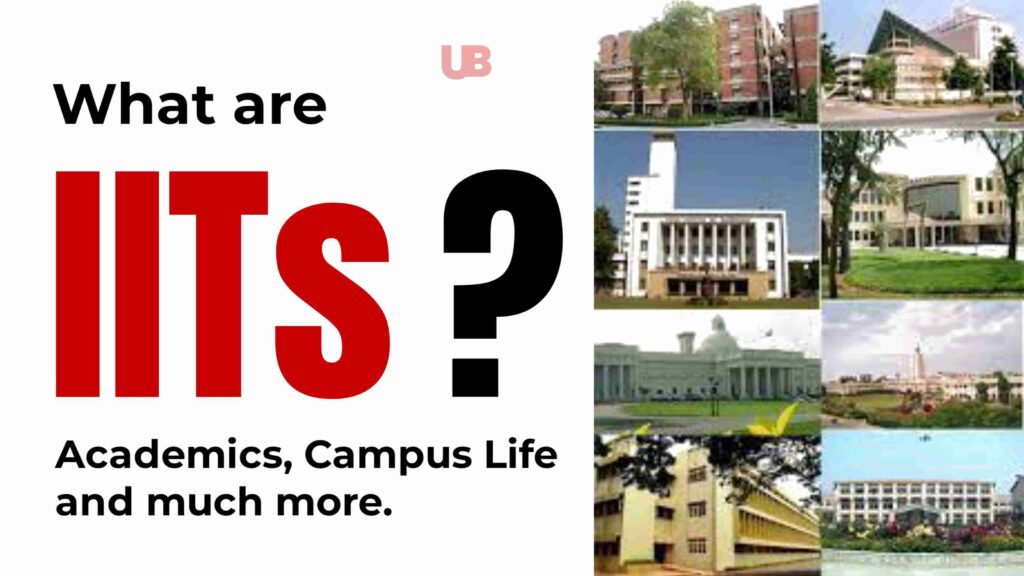
Indian Institute of Technology (IIT)
The Indian Institutes of Technology (IITs) are a group of autonomous public technical and research universities spread across India. Known for their academic rigor, excellent faculty, and cutting-edge research, IITs have earned a reputation as premier institutions for engineering and technology education, not just in India but globally. This blog explores the history, significance, academic structure, admission process, and overall impact of IITs.
Table Of Contents
Brief History of IITs
The inception of IITs dates back to the early years of India’s independence. The first IIT, IIT Kharagpur, was established in 1951, based on the recommendations of the Sarkar Committee. The vision was to create institutions that would foster high-quality education, research, and development in engineering and technology. Following the success of IIT Kharagpur, other IITs were established across the country.
Today, there are 23 IITs, each contributing significantly to India’s technical education and research landscape.
Admission Process in IITs
Joint Entrance Examination (JEE)
- JEE Main: The first step towards securing admission in an IIT is to qualify for the JEE Main examination. This exam is open to all eligible students who have completed their 12th-grade education with Physics, Chemistry, and Mathematics.
- JEE Advanced: Only the top performers from JEE Main are eligible to appear for JEE Advanced. The performance in JEE Advanced is the primary criterion for admission to undergraduate programs in IITs.
The admission process is extremely competitive, with millions of students appearing for JEE Main, and only a small fraction qualifying for JEE Advanced. The selection process ensures that only the most capable and dedicated students make it to the IITs.
Graduate Aptitude Test in Engineering (GATE)
You can secure a postgraduate seat at one of the prestigious Indian Institutes of Technology (IITs) through the Graduate Aptitude Test in Engineering (GATE) Exam. It is a significant achievement and a dream for many engineering graduates. GATE is a national-level examination that tests the comprehensive understanding of various undergraduate subjects in engineering and science.
Academic Programs and Curriculum
IITs offer a wide range of undergraduate, postgraduate, and doctoral programs in various engineering, technology, and scientific disciplines. The curriculum is designed to provide a solid theoretical foundation, coupled with practical and research-oriented learning.
Undergraduate Programs
- B.Tech (Bachelor of Technology): The flagship undergraduate program, typically of four years, covers various engineering disciplines such as Computer Science, Electrical, Mechanical, Civil, Chemical, and Aerospace Engineering.
- Dual Degree Programs: These programs combine a B.Tech and an M.Tech degree, usually completed in five years, allowing students to gain deeper knowledge in their field of study.
Postgraduate Programs
- M.Tech (Master of Technology): A two-year program focused on advanced engineering education and research.
- M.Sc (Master of Science): Offered in disciplines like Physics, Chemistry, Mathematics, and Biotechnology.
- MBA (Master of Business Administration): Some IITs offer MBA programs through their management schools.
Doctoral Programs:
- Ph.D. (Doctor of Philosophy): These programs are research-intensive, aiming to produce scholars and researchers who contribute to academic and industrial advancements.
Research and Development
Research is a cornerstone of the IITs’ mission. Each IIT has state-of-the-art research facilities and laboratories, fostering an environment where innovation thrives. They engage in cutting-edge research in areas such as nanotechnology, artificial intelligence, renewable energy, biotechnology, and more.
IITs frequently collaborate with global universities, research institutions, and industries. These partnerships enhance the quality of research and provide students and faculty with opportunities to work on international projects, access advanced resources, and contribute to significant scientific breakthroughs.
Campus Life of IITs
Life at an IIT is vibrant and multifaceted. While academics form the core of the student experience, IITs also offer a range of extracurricular activities that promote overall development.
Many videos are available on YouTube regarding the Campus Tour of IITs. You can explore them on YouTube.
Cultural and Technical Festivals at IITs
- Each IIT hosts annual cultural and technical festivals, such as IIT Bombay’s Mood Indigo and IIT Kharagpur’s Kshitij. These festivals attract participants from across the country and provide a platform for students to showcase their talents in music, dance, drama, and various technical competitions.

Sports and Recreation in IITs
- IITs provide excellent sports facilities, encouraging students to engage in physical activities and sports. Inter-IIT sports meets are highly anticipated events, fostering a spirit of healthy competition and camaraderie among students from different IITs.
Clubs and Societies in IITs
- A wide array of clubs and societies cater to diverse interests, from robotics and coding to literature, photography, and entrepreneurship. These clubs organize workshops, seminars, and competitions, helping students develop skills beyond their academic curriculum.
Notable Alumni of IITs
IITs have a long list of distinguished alumni who have made significant contributions in various fields. Some notable IIT alumni include:
- Sundar Pichai: CEO of Alphabet Inc. and its subsidiary Google.
- Arvind Krishna: CEO of IBM.
- N.R. Narayana Murthy: Co-founder of Infosys.
- Raghuram Rajan: Former Governor of the Reserve Bank of India and Professor at the University of Chicago.
These alumni serve as inspiration to current and future students, demonstrating the heights of success that an IIT education can help achieve.
Impact on Society Due to IITs
The impact of IITs extends beyond individual success stories. IITs have played a crucial role in nation-building by contributing to India’s technological and economic development. The research and innovations emerging from IITs address critical societal challenges, such as sustainable energy solutions, healthcare technologies, and infrastructure development.
Moreover, IITs have fostered a culture of entrepreneurship. Many IIT graduates have founded successful startups, contributing to India’s growing startup ecosystem. These ventures often focus on solving real-world problems, creating jobs, and driving economic growth.
The Indian Institutes of Technology (IITs) stand as beacons of excellence in technical education and research. Their rigorous academic programs, emphasis on research, vibrant campus life, and successful alumni make them dream destinations for aspiring engineers and technologists. The contributions of IITs to India and the world are profound, shaping the future of technology, innovation, and economic development. For students who aspire to be at the forefront of technological advancements and research, securing a place in an IIT is a coveted and transformative achievement.






